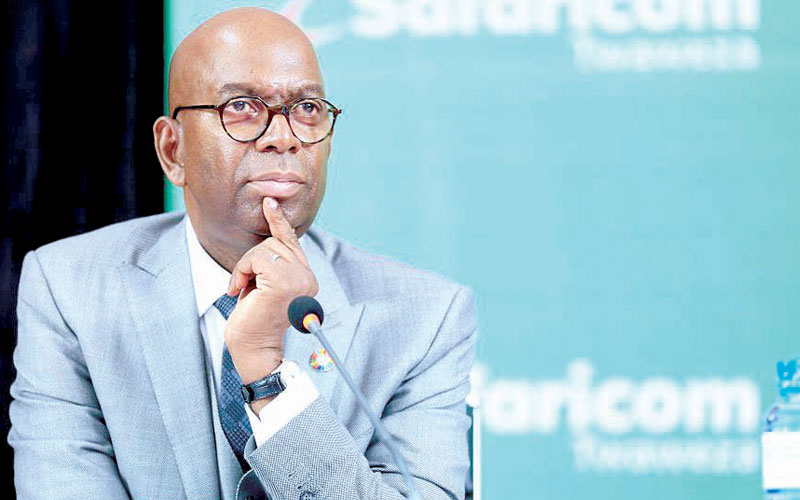Dwindling economic fortunes led to massive redundancies in 2019
By Noel Wandera, December 24, 2019Dwindling economic fortunes led to massive redundancies by companies in Kenya, as the National Treasury cut the revenue target by Sh100 billion amid lesser funds from Kenya Revenue Authority in the course of the 2019/20 financial year. By June, ordinary revenues to the exchequer amounted to Sh1.5 trillion against a target of Sh1.6 trillion. Signalling a troubled economy, the largest shortfall of Sh56.8 billion – on account of a shrinkage in the other income taxes of Sh46.9 and pay-as-you-earn (PAYE) of Sh100 billion. Here are some key highlights and incidents that informed discourse and policy direction in 2019.
The 2019/20 budget soared to Sh3.2 trillion, despite KRA struggling to meet its targets. This figure is the highest in Kenya’s history, with expenditure increasing substantially since Mwai Kibaki took over as the president in December 2002.
By the time he was leaving office in 2013, as devolved units took shape, the Budget was Sh1.2 trillion, largely funded by taxpayers as opposed to President Uhuru Kenyatta’s tenure, where the government has shown appetite for borrowing expensive external debts.
The money has been used to fund infrastructure projects including the Standard Gauge Railway and upgrading of airports.
Fifteen companies listed on the Nairobi Securities Exchange (NSE) sacked 1,711 employees.
Among them were East Africa Portland Cement Company’s 936 permanent and contracted employees; Stanbic Bank at 200; East African Breweries (EABL) parent company Diageo at 100 while Telkom Kenya laid off 575 ahead of its proposed merger with Airtel Kenya.
The Central Bank of Kenya governor Patrick Njoroge announced issuance of new Sh1,000 notes to fight corruption.
The exercise was concluded on September 30 with 209,661,000 pieces of Sh1,000 notes being mopped from the economy in an exercise that rendered Sh7.386 billion worthless.
Uhuru announced changes in his Cabinet bringing in Ukur Yatani, formerly the Labour and Social Protection Cabinet Secretary, to replace incumbent Henry Rotich as Acting Treasury CS.
Rotich, together and his Principal Secretary Kamau Thugge stepped aside to wait for court determination in a case in which they were accused of complicity by the Director of Public Prosecution Noordin Haji.
They were charged with, among other things, abuse of office, conspiracy to defraud and engaging in a project without planning.
They and 10 others, were arrested for connivance in the Kimwarer and Arror dams scandal, where procurement rules were reportedly flouted in awarding an Italian construction company, CMC Di Ravena a contract at an inflated price of Sh17 billion.

In efforts to settle pending bills owed suppliers, an amendment to the Competition Act 2010 saw the introduction of a new section, where public and private firms face a fine of up to Sh10 million for failure to pay suppliers within agreed periods.
In addition to the fines, the heads of defaulting firms could also be committed to a maximum jail term of five years if found guilty. Suppliers to county governments are owed up to Sh108.4 billion as at June 2018, out of which Sh51.3 billion is genuine, according to the Auditor General.
In November, Parliament lifted the interest rate cap, in a move meant to revive shrinking credit access to the private sector.
Kenya exported its first consignment of 200,000 barrels of crude oil worth Sh1.2 billion under the Early Oil Pilot Scheme (EOPS), marking Kenya’s entry into the league of oil-exporting countries.
Tullow estimates that Kenya’s onshore fields in Turkana hold 560 million barrels of oil and expects to produce up to 100,000 barrels per day from 2022.
The Competition Authority of Kenya (CAK) approved the merger between Airtel and Telkom, which, however, must now await a nod from Communications Authority of Kenya (CA) and legal tussles.
If approved, the sector will become a duopoly, pitying Safaricom and the merged entities. By June 2019, according to the communications authority, Airtel and Telkom had a combined market share of 32.7 per cent, while Safaricom still commands market leadership with 63.5 per cent.
Commercialisation of BT cotton will start in March 2020, after an 18-year waiting period. The variety will increase production capacity and enable the country to realise the manufacturing pillar, one of President Uhuru Kenyatta’s Big Four agenda.
It is estimated that production of BT cotton can increase income in the textile industry from the current Sh3.5 billion to Sh2 trillion by 2022, create 500,000 cotton jobs and 100,000 new jobs in cloth making.
The genetically modified cotton variety is resistant to the destructive African Ball worm. It is also expected to lower the cost of production by 40 per cent.
Bob Collymore, the chief executive of East Africa’s largest and most profitable mobile network operator Safaricom, died aged 61, after a two-year battle with cancer.
In October, Safaricom’s board announced the appointment of Peter Ndegwa, from Diageo PLC, where he is the managing director of Diageo Continental Europe as the incoming CEO, whose reign will begin in April 2020. In the interim, former CEO Michael Joseph is holding brief as the acting CEO.
Senators backed the National Assembly revision of the country’s borrowing ceiling to Sh9 trillion. The regulation now enables Kenya to replace its expensive debt with cheaper and long-term concessional options.
It will also prevent a crisis, where Treasury would have to cancel all projects and drastically cut back budgets that had already been allocated to the Judiciary, National Assembly, Executive and the counties.
